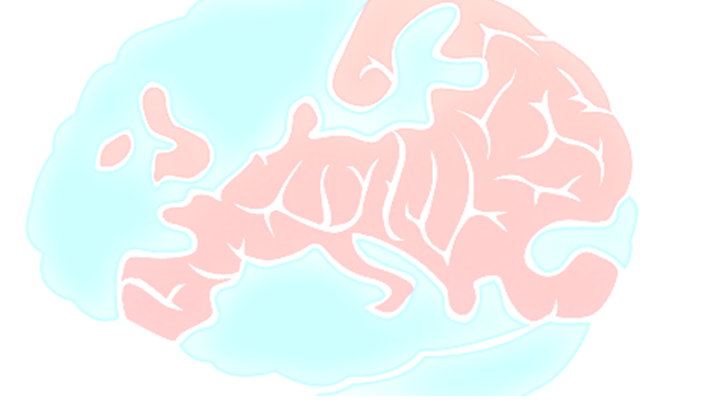
by Amandine Charley. Originally published on 2013/10/19
Germany’s parliamentary elections have resulted in a major electoral victory of Angela Merkel’s Christian Democratic Union (CDU), confirming Merkel in office for a third consecutive term with a share of almost 42% of the vote and only five seats short of a majority in the Bundestag. These figures alone are very impressive and would suggest that all is well in Germany, but the failure of Merkel’s coalition partner, the Free Democratic Party (FDP), to pass the electoral threshold, and the 4.7% of the vote achieved by the Eurosceptic Alternative for Germany (AfD) party, suggest otherwise.
German voters have opted for the “comfortable” option, preferring the continuation of the policies of the past eight, but in particular the last four, years. More precisely, one probably should state that voters have confirmed Merkel in office, but not her government. The electoral campaign had been lifeless, without content and debate, climaxing in the gigantic electoral poster at Berlin’s central station that depicts the iconic “Merkelian hash”. A large majority of the Germans seems to have boundless trust in Merkel’s skills, entrusting Germany’s future in Mutti’s (mommy) hands, yet they might come to regret this soon.
Merkel has been praised for her style of governance, which is often described as unpretentious, unexcited and soothing, usually contrasted with her predecessor, the Social Democrat Gerhard Schröder. It is correct that Merkel runs her government and German affairs in a significantly altered way, yet it seems difficult to seriously claim that Merkel does indeed “lead” the country. The previous two coalition governments have been initially marred by internal clashes between the coalition partners and within the coalition parties, with Merkel a passive bystander, and later by repeated failures to deliver upon any of its many announced reforms regarding healthcare, education, energy security, science or employment. Indeed, it amounts to a major achievement that Merkel has succeeded in claiming whatever little successes the previous two coalition governments had as her own whilst laying the blame for all failures on the junior coalition partners.
Who leads? Merkel does not.
The question which policy Merkel stands for – conservative, social, liberal, green – is almost impossible to answer, depending invariably on what appeals to the masses, making Merkel a globally leading politician without a real profile. Her speeches are comprised of key messages emphasizing that either all is well or is going to be well in Germany. Merkel has proven her talent in waiting and observing before making any move – this applies both to the national and European level of policy-making – a quality that Germans find comforting in times of global turmoil and Europe’s never ending financial problems.
This, unfortunately, is part of the bad news. Germany is one of, maybe the leading power in the EU, but Merkel has proven to care more about domestic votes than European solutions, putting national interests constantly above European ones, actively propagating that southern Europeans only have themselves to blame for the miserable financial condition of their countries. Securing German taxpayers’ interests and money against mismanagement by “lazy” Greeks or Spaniards has been part of Merkel’s European policy in the past three years, whilst the German government refused to combine severe austerity measures with programmes to stimulate economic growth in the southern periphery. Building on the successes of the Agenda 2010 that had been pushed through by the Social Democratic-Green coalition, Merkel declared Germany had gone through its own programme of austerity and adjustments and other countries were to emulate the German cure now, blissfully ignorant that Germany’s economic success is owed to European integration and strong European demand (whilst US and Chinese demand has plateaued or even decreased). Instead of providing any leadership, Merkel has successfully blocked moves to set up investment programmes along the lines of the legendary Marshall-Plan – even those brought forward by her own ministers, which were trying to combine economic stimuli with green policies, like plans to invest heavily into solar and wind power in Greece and then having part of the generated energy being provided to Germany.
Germans might believe that Merkel is protecting their money and thus willfully ignore that Merkel’s actions have significantly contributed to creating tension and disunity within the EU. The idea that Germany might be better off without the Euro is dangerous and wide-spread in the population and the government has fed it repeatedly in the past term, failing to explain any European rescue package or bailout, and preferring instead to allow wild accusations and finger-pointing to take place. Merkel has skillfully ensured that enough measures have been taken to claim Berlin has tried to resolve the crisis, yet never more than absolutely necessary to ensure potential voters need not worry about their money.
Merkel’s failure to provide any leadership in the EU is difficult to grasp and often far removed from an average German’s daily life, but things are not any better domestically. Two examples easily illustrate this: the Energiewende (energy transition) and the mass surveillance scandal (PRISM, Tempora). Germany is one of Europe’s renewable energy pioneers, considered to be the first industrial nation capable of becoming powered solely by RES like wind, solar and hydropower. The country has seen its share of RES in power generation soar in the past decade due to generous feed-in tariffs and favourable price developments in particular for solar panels. There is no doubt that Germany will meet its RES obligations set by the EU for 2020, possibly even surpass them, yet the outlook for the next two decades is bleak. Necessary investments in transmission and distribution infrastructure, such as HVDC-transmission lines, have been delayed or postponed, and offshore-wind parks remain unconnected to the grid in order to prevent blackouts. The renewable energy contribution, the EEG levy, for 2014 will increase by almost 1ct/kWh to 6.24ct/kWh, constituting more than 20% of a German’s average energy bill (see also here). Average consumers will bear the brunt as increasing numbers of industrial customers are exempted from paying the EEG levy.
All of Merkel’s leadership qualities manifested also in the weeks following the leakage of the NSA mass surveillance programme. For weeks the government failed to declare its position on the illegal surveillance of Germans and other Europeans, and when Merkel finally voiced an opinion, it was in defense of the NSA by stating that the protection of democracy warrants the violation of personal rights.
The above are just a few of the issues that deserve to be mentioned, and could include many more on both the European and the national level, but one final issue might warrant attention here: Merkel has succeeded in removing all kinds of content from politics. Regardless of that issue she will let Germans know that all will work out fine without a word of which problems need to be addressed or any attempt to explain her policies. She has achieved any politician’s dream: People no longer doubt or question anything she does – unfortunately voters will soon find out that Germany will not go unscathed if Europe fails. It bears no good news for democracies if voters no longer care about contents. Time will tell if Merkel has done Germany a huge disservice with her style of governance.

 Is EU citizenship for sale – or for keeps? A critical analysis of the CJEU’s Golden Visa ruling.
Is EU citizenship for sale – or for keeps? A critical analysis of the CJEU’s Golden Visa ruling.  The European Union in Space: From exploration and innovation to security and autonomy
The European Union in Space: From exploration and innovation to security and autonomy  The Rise of the Right: The Threat Right-Wing Extremism Poses to Women and Feminist Efforts in Germany
The Rise of the Right: The Threat Right-Wing Extremism Poses to Women and Feminist Efforts in Germany  The silent shield – how special operations safeguard the global supply chain
The silent shield – how special operations safeguard the global supply chain 


